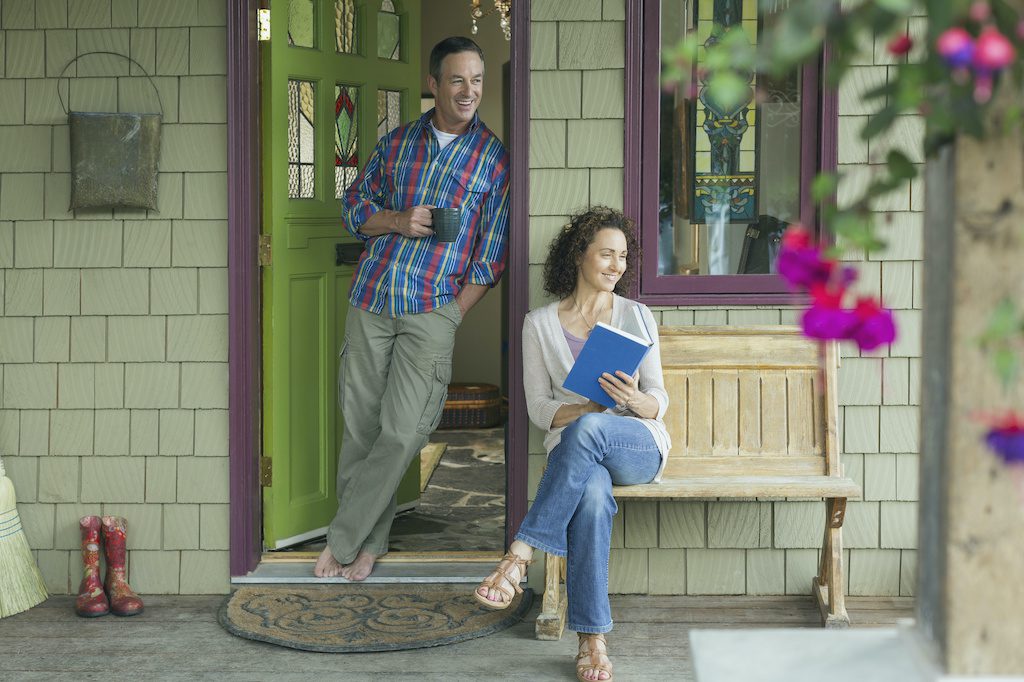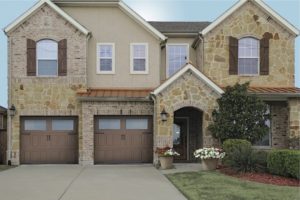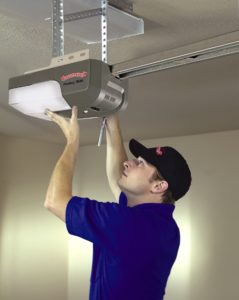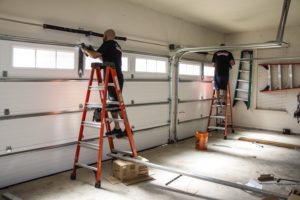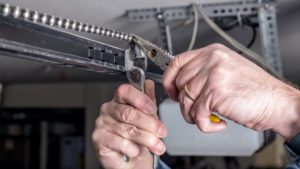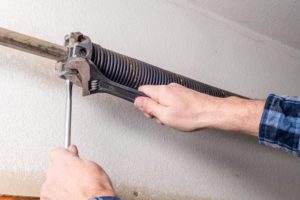Uncovering solutions to the most frequent garage door dilemmas.
Garage doors typically weigh in at about 150 pounds. Considering they cycle over 1,500 times a year, it’s unsurprising that problems can arise. That’s a whole lot of ups and downs!
Simple troubleshooting steps can play a crucial role in preserving its longevity and optimal performance.
While some fixes require professional attention, many common glitches can be managed by DIY enthusiasts like you. Addressing these problems early on not only prevents further deterioration but also saves you from costly repairs down the line.
Should you stumble upon a problem, whether it’s with your garage door motor, springs, rollers, tracks, cables, or a unique concern, look no further than Overhead Door Company of Huntsville/North Alabama™. Our garage door experts will swiftly pinpoint the issue, present a cost-effective repair estimate, and undertake the necessary fixes to get your garage door back to its best.

Try our Garage Door Troubleshooting Guide Below

Can we help?
Let us know if you are interested in any of our overhead garage door service or repairs.

Schedule a Service?
We service and repairs most all brands of garage doors and operators.
Safety and Parts Note
Safety:
Before going any further, we want to be clear. Garage doors can be dangerous, and it’s not uncommon for people to get injured while attempting any garage door repairs. Even experienced technicians with years of experience should work with caution, as it is in the highest insurance classification for a work-related injury. This is not a garage door safety guide and cannot account for every garage door situation. Always proceed with caution. When in doubt, leave the job to garage door professionals. They are familiar with the dangers of working with a garage door, hardware, and all of its moving parts.
If you decide to operate the garage door manually, we recommend that you either close or brace the door before pulling the release cord and that nothing is in its operating path. If you attempt any adjustments, do not loosen or remove any part of the door or hardware that is under spring tension or the weight of the door. Make sure the door is not jammed. Check that its path is clear and unobstructed before operating the motor. Here are some basic tips for diagnosing your problem, from a basic inspection to a door stuck halfway.
Garage door accidents are responsible for 20,000 to 30,000 injuries every year according to the International Door Association. The garage door is one of the most dangerous parts of the household and is responsible for several dozen deaths every year. Most of the victims of these fatalities are small children. Our company has chosen not to sell over-the-counter parts to anyone. We offer insured, full-time technicians, no sub-contractors, to make repairs on your garage door and it’s moving parts.
Parts:
While our establishment handles sales, services, and installations, please be aware that we don’t offer services to walk-in customers for part purchases, except for transmitters and keyless entries. Nonetheless, we stock an extensive parts inventory for all planned service and installation schedules.
Should you have more questions or need assistance, don’t hesitate to contact our dedicated team. We’re here to help!
Overhead Door™ Residential Services
Overhead Door™ Residential Services
Need garage door service right away? Take a look at our services and call our team of specialists today.
Needing a garage door service right away? Take a look at our services and call our team of specialists today:

